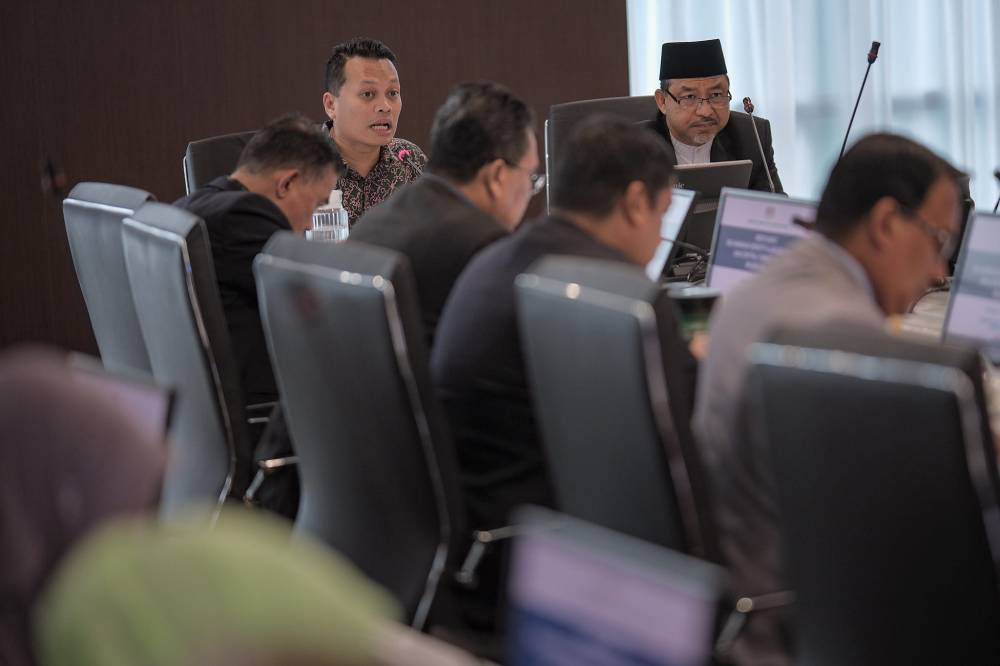Restructuring of Natural Resources Ministry seen as positive step - Experts
Experts stress performance indicators for new ministries
SHARIFAH SHAHIRAH
SHAH ALAM - Experts believe the recent separation of the Natural Resources, Environment and Climate Change Ministry into two distinct ministries can enhance effectiveness in addressing crucial environmental and sustainability challenges.
Ecotourism and Conservation Society Malaysia (Ecomy) President and CEO Andrew Sebastian expressed support for the division of the ministry into two departments.
He stressed that environmental sustainability and climate change management encompass various issues and portfolios.
"Considering the vast scope and importance of environmental sustainability and climate change, dividing this into separate energy-focused initiatives appears to be a prudent approach.
"A ministry dedicated solely to climate change, without collaboration with other relevant ministries, may not adequately tackle the multifaceted challenges posed by climate-related issues," Andrew told Sinar Daily when contacted.
He highlighted the importance of establishing clear Key Performance Indicators (KPIs), ensuring strong oversight, sharing a robust blueprint with stakeholders, and fostering effective communication for the new structure to function optimally.
"If stringent Key Performance Indicators (KPIs) are established, accompanied by a robust blueprint shared with stakeholders, and effective communication with all parties involved, then success is achievable.
"This portfolio holds significant importance within the ministry, and with well-defined KPIs in place, both the ministry and the minister can be held accountable.
"It is imperative for the minister to allocate all necessary resources to fulfill their duties before their term concludes," he said.
Andrew also urged the need for careful consideration of the Ministry of Energy Transition, as various aspects, including energy, natural resources, and the energy sector's reliance on coal-fired power plants, are interconnected with climate change.
He highlighted the importance of integrating climate change initiatives across ministries, particularly in areas like transportation, natural resources, and primary industries such as plantations.
On climate change, Andrew urged for a cross-sectoral approach, emphasising the need for every ministry to integrate climate change considerations into its plans.
"When addressing climate change, it's a cross-sectoral issue. Every ministry should ideally incorporate a climate change section that aligns with Malaysia's mitigation plan to reduce our nation's greenhouse gas emissions, fulfilling our commitments on the global stage," he added.
Ecoknights Vice President Amlir Ayat echoed Andrew's sentiments and spotlighted the need for robust interagency communication to ensure the effective implementation of sustainability programmes.
Environmental activist Aidil Iman Aidid noted that while decentralising environmental governance through the split ministries may pose challenges, the Malaysian Climate Change Action Council (MyCAC) chaired by Prime Minister Datuk Seri Anwar Ibrahim aims to address them.
Aidil highlighted the importance of the Climate Change Act and stressed the need for inclusive formulation processes involving stakeholder consultations.
“I want to see more emphasis on the National Adaptation Plan and how building climate change resilience should be a priority from the Ministry and Minister.
“I hope that both ministries will work together to ensure that their efforts are not in silos, particularly on sustainable energy growth,” Aidil said.
Following a Cabinet reshuffle led by Anwar on December 12, the government introduced the Ministry of Energy Transition and Public Utilities, and the Ministry of Natural Resources and Sustainability, emerging from restructuring the Natural Resources, Environment, and Climate Change Ministry (NRECC).
The reshuffle involved the creation of four new ministries, indicating the Prime Minister's commitment to a more focused approach to these sectors.
With the NRECC split, Deputy Prime Minister Datuk Seri Fadillah Yusof assumed responsibility for energy transition and public utilities, previously under NRECC, and serves as the minister-in-charge for Sabah and Sarawak.
The term "climate change" has been dropped, with Nik Nazmi Nik Ahmad leading the newly created Natural Resources and Environmental Sustainability Ministry.
Nik Nazmi described that this division allows the government to address climate change and environmental sustainability comprehensively and equitably.










